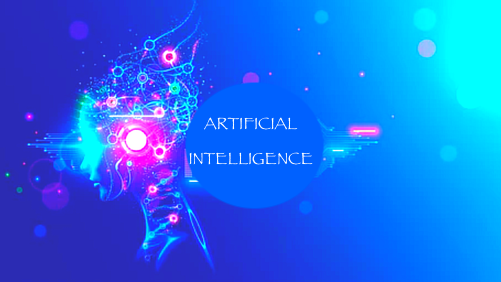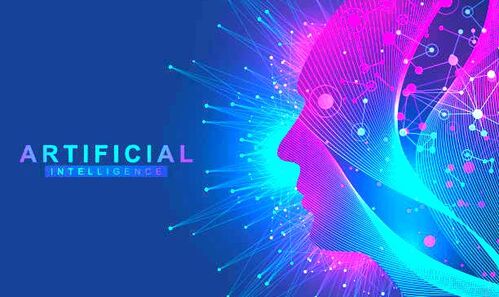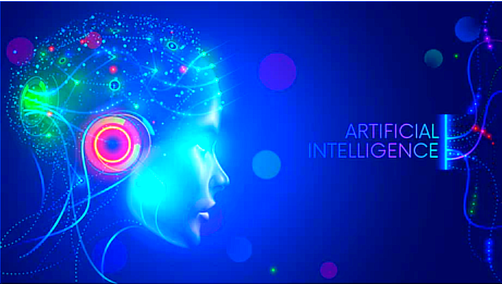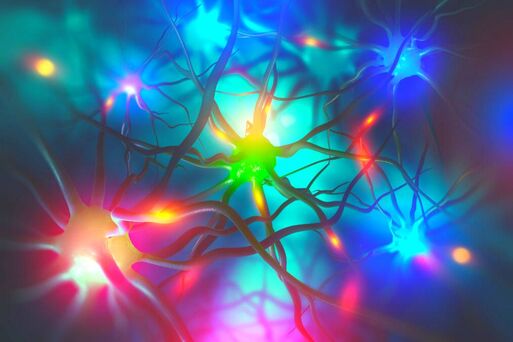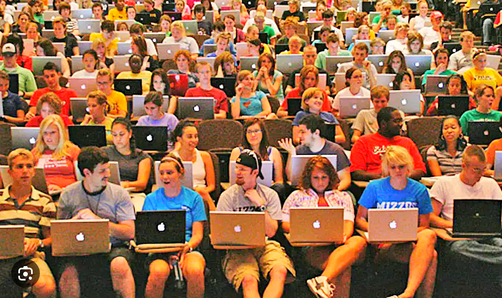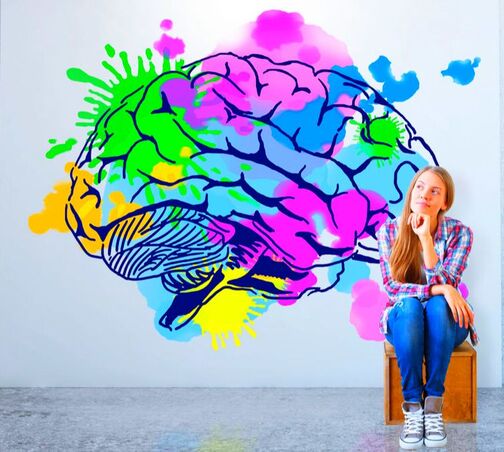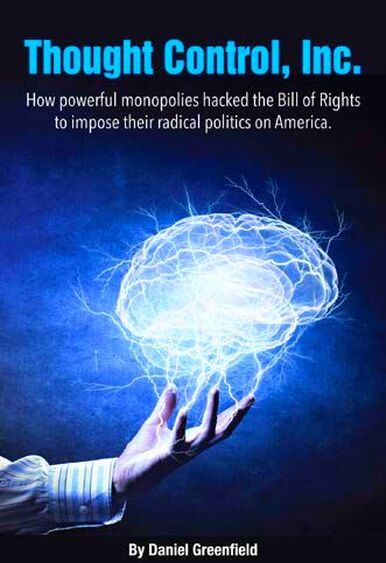🌸
🌸
... the illusion of a golden chariot
of a new age sweeping across the sky.
🌸
In the frictionless future ...
there will be no work,
no dirt,
no pollution
and no process.
Everything will just happen.
But the only thing that’s happening is the
🌸
END OF HUMANITY
🌸
https://www.danielgreenfield.org/2023/06/ai-is-illusion-of-soulless-society.html
🌸
... the illusion of a golden chariot
of a new age sweeping across the sky.
🌸
In the frictionless future ...
there will be no work,
no dirt,
no pollution
and no process.
Everything will just happen.
But the only thing that’s happening is the
🌸
END OF HUMANITY
🌸
https://www.danielgreenfield.org/2023/06/ai-is-illusion-of-soulless-society.html
🌸
🌸
The frictionless society makes the private public,
simplifies it,
demystifies it,
industrializes it
and in the process
LOSES ITS SOUL.
🌸
Human relationships and the family collapse
even as they are deconstructed.
🌸
Religion, philosophy and art cease to exist.
🌸
Everything appears to be at our fingertips and yet nothing seems to be.
On the surface everything appears to be sleek and shiny,
but underneath is a swamp of slave labor and filth into which it is all collapsing.
🌸
Everything is supposed to just work
and yet nothing actually works when we need it to.
🌸
Beneath the frictionless world of apps and AI,
there’s no food in the stores,
no products in the supply chain
and so many of the things people once took for granted, no longer work.
🌸
Mistaking the interface for the process is an economic,
cultural and moral disaster that is destroying us ...
🌸
The frictionless society makes the private public,
simplifies it,
demystifies it,
industrializes it
and in the process
LOSES ITS SOUL.
🌸
Human relationships and the family collapse
even as they are deconstructed.
🌸
Religion, philosophy and art cease to exist.
🌸
Everything appears to be at our fingertips and yet nothing seems to be.
On the surface everything appears to be sleek and shiny,
but underneath is a swamp of slave labor and filth into which it is all collapsing.
🌸
Everything is supposed to just work
and yet nothing actually works when we need it to.
🌸
Beneath the frictionless world of apps and AI,
there’s no food in the stores,
no products in the supply chain
and so many of the things people once took for granted, no longer work.
🌸
Mistaking the interface for the process is an economic,
cultural and moral disaster that is destroying us ...
🌸
🌸
Artificial Intelligence - AI
IS THE ILLUSION
OF A SOULLESS SOCIETY
Daniel Greenfield June 18, 2023
Artificial Intelligence - AI
IS THE ILLUSION
OF A SOULLESS SOCIETY
Daniel Greenfield June 18, 2023
🌸
The development of generative AI tools that can spit out everything from paintings to essays is the next step in frictionless technology disrupting our society. The frictionless illusion is all around us. It tells us that the complex matters of delivery services, supply chains and transportation have been reduced to an app and a few swipes on a smartphone.
In the frictionless utopia, food is delivered to your door through an app, meat is cloned in a lab and human relationships are achieved by swiping right. Electric cars magically just work, without any pollution or moving parts, much like wind turbines and solar panels. Where the achievements of the past, like splitting the atom or building a national highway system, depended on mastering complexities, postmodern technology promises to eliminate them.,
To understand how massive scams like Theranos or FTX could take place, you have to live in an imaginary matrix of impossibilities where new ideas eliminate complexity rather than multiplying it.
Any engineer could tell you that it works the other way around, and that simplicity is inherently deceptive, and yet the public keeps being sold on the frictionless illusion.
Then when the app turns out not to be hooked up to anything and there’s no money in the bank, the illusion falls apart and an incomprehensible panic sets in because we have mistaken the interfaces for the processes.
But the panic only goes on long enough for a new set of shiny frictionless objects promising to simplify reality to be rolled out as substitutes for the old.
Cryptocurrency and the metaverse have imploded, but in their place is the promise of AI.
Among so much else, AI offers seductively frictionless art and literature. The hype, some of it authored by ChatGPT, boasts that chabots will eliminate millions of white collar jobs.
That’s no doubt true. But what that really means is that American white collar workers will be replaced not by some omnipotent artificial intelligence, but by the low-paid third-world workers training it.
In the 18th century, crowds were wowed by the Mechanical Turk: a machine that seemed able to play chess. In reality, there was a man inside the machine making the moves. ChatGPT isn’t an omnipotent intelligence: it’s Kenyan workers maintaining the illusion by training it for the princely sum of $1.32 an hour.
OpenAI is no less of a dystopian hall of mirrors than its tech industry predecessors who put conventional nerds like Bill Gates or Mark Zuckerberg out front while much of the actual work was carried out by anonymous Asian and Indian workers on visas or abroad who provided the intelligence that made the software tools seem smart.
The machine has never actually replaced the man. All it’s done is shove the man deeper inside a cubicle or in a distant land while a sophisticated society gawks at a new Mechanical Turk.
Every frictionless prophecy turns out to be a clean lie hiding an ugly reality.
Recycling begins as a perpetual loop of three arrows on a blue or green bin, but actually ends with 8-year-old boys climbing over mountains of garbage in Africa.
Phone delivery and ride apps connect to illegal aliens doing gig work, and content moderation at Facebook and YouTube is handled by Filipino women viewing thousands of images and videos of graphic violence and pornography an hour in exchange for what to us is spare change.
Because there’s always someone inside the Mechanical Turk. And the system is not run to the standards of whatever lies come from the girls in PR or the geeks in black turtlenecks out front, but to the third world workers who are actually hiding inside the metaphorical guts of the system.
GIGO or Garbage In, Garbage Out, is a binding principle for a reason. What goes in these is mountains of our data. Generative AI hoovered up the individual work of millions of writers, artists and just ordinary people, and then with some third-world fine-tuning, spits out a randomized imitation whose sole function is to fool us into thinking it’s original content.
These models feed the essential frictionless myth that work can begin with an idea and end with a product while entirely evading the process. It’s a seductive postmodern idea that is at the heart of so much progressive folly. Art is not an idea and it’s not a product, it’s a process. The value of anything derives not from what it looks like, but the work that someone put into it.
Modern society has mostly forgotten that. It’s why America’s manufacturing was outsourced and gutted, flooded by ‘Made in China’ garbage whose sole virtue is that it imitates actual products. Consumers buy pricey German knives made in China only to see them dull in less than a year, they buy fake leather shoes that crumble in even less time, and tools that instantly rust.
Any product is only as good as its process. Without the process, a product is only an illusion.
And that’s true of culture as well. WGA writers are striking in Hollywood because they know that in the industry at its current state, ChatGPT can easily replace them and is already doing so. There’s more content than ever in the streaming wars and it’s also more disposable than ever. Viewers who notice that every movie and show seems to be the same aren’t wrong.
They’re all made in assembly line processes using formulaic tools and driven by politics and effects. Outwardly they offer an illusion of being set in different times and places, with different characters, but they are actually just reskinned versions of each other. Does it really matter then if a human writer automates his writing with a Save the Cat formula or ChatGPT does it for him?
Generative AI works so well because so much of our writing has become rote. Its models can easily mimic the rote work that lawyers, doctors and bureaucrats do, and the rote photoshopped fan art that Midjourney produces so well and the generic internet content that ChatGPT models.
AI can replace humans to the extent that they allow their work to be driven by digital tools and impulses, by the need to conform it to a technological model, rather than a creative soul. Much as in the industrial revolution, machines make better machines than people do, but people cannot be replaced by machines as long as they retain the humanity of their work.
The frictionless impulse is the work of men (and a few women) who believe in a singularity in which man and machine will unite to become one. This foolish posthuman delusion could only be entertained by people who have forgotten what it is to live a human life. And it could only gain currency in a society that has lost its religious and cultural bearings. And thus its humanity.
Such a society comes to think that men and women can swap roles and even biologies, that children should be killed if they are unwanted and that everything we are is reducible to DNA strands and social standards.
In the frictionless utopia, food is delivered to your door through an app, meat is cloned in a lab and human relationships are achieved by swiping right. Electric cars magically just work, without any pollution or moving parts, much like wind turbines and solar panels. Where the achievements of the past, like splitting the atom or building a national highway system, depended on mastering complexities, postmodern technology promises to eliminate them.,
To understand how massive scams like Theranos or FTX could take place, you have to live in an imaginary matrix of impossibilities where new ideas eliminate complexity rather than multiplying it.
Any engineer could tell you that it works the other way around, and that simplicity is inherently deceptive, and yet the public keeps being sold on the frictionless illusion.
Then when the app turns out not to be hooked up to anything and there’s no money in the bank, the illusion falls apart and an incomprehensible panic sets in because we have mistaken the interfaces for the processes.
But the panic only goes on long enough for a new set of shiny frictionless objects promising to simplify reality to be rolled out as substitutes for the old.
Cryptocurrency and the metaverse have imploded, but in their place is the promise of AI.
Among so much else, AI offers seductively frictionless art and literature. The hype, some of it authored by ChatGPT, boasts that chabots will eliminate millions of white collar jobs.
That’s no doubt true. But what that really means is that American white collar workers will be replaced not by some omnipotent artificial intelligence, but by the low-paid third-world workers training it.
In the 18th century, crowds were wowed by the Mechanical Turk: a machine that seemed able to play chess. In reality, there was a man inside the machine making the moves. ChatGPT isn’t an omnipotent intelligence: it’s Kenyan workers maintaining the illusion by training it for the princely sum of $1.32 an hour.
OpenAI is no less of a dystopian hall of mirrors than its tech industry predecessors who put conventional nerds like Bill Gates or Mark Zuckerberg out front while much of the actual work was carried out by anonymous Asian and Indian workers on visas or abroad who provided the intelligence that made the software tools seem smart.
The machine has never actually replaced the man. All it’s done is shove the man deeper inside a cubicle or in a distant land while a sophisticated society gawks at a new Mechanical Turk.
Every frictionless prophecy turns out to be a clean lie hiding an ugly reality.
Recycling begins as a perpetual loop of three arrows on a blue or green bin, but actually ends with 8-year-old boys climbing over mountains of garbage in Africa.
Phone delivery and ride apps connect to illegal aliens doing gig work, and content moderation at Facebook and YouTube is handled by Filipino women viewing thousands of images and videos of graphic violence and pornography an hour in exchange for what to us is spare change.
Because there’s always someone inside the Mechanical Turk. And the system is not run to the standards of whatever lies come from the girls in PR or the geeks in black turtlenecks out front, but to the third world workers who are actually hiding inside the metaphorical guts of the system.
GIGO or Garbage In, Garbage Out, is a binding principle for a reason. What goes in these is mountains of our data. Generative AI hoovered up the individual work of millions of writers, artists and just ordinary people, and then with some third-world fine-tuning, spits out a randomized imitation whose sole function is to fool us into thinking it’s original content.
These models feed the essential frictionless myth that work can begin with an idea and end with a product while entirely evading the process. It’s a seductive postmodern idea that is at the heart of so much progressive folly. Art is not an idea and it’s not a product, it’s a process. The value of anything derives not from what it looks like, but the work that someone put into it.
Modern society has mostly forgotten that. It’s why America’s manufacturing was outsourced and gutted, flooded by ‘Made in China’ garbage whose sole virtue is that it imitates actual products. Consumers buy pricey German knives made in China only to see them dull in less than a year, they buy fake leather shoes that crumble in even less time, and tools that instantly rust.
Any product is only as good as its process. Without the process, a product is only an illusion.
And that’s true of culture as well. WGA writers are striking in Hollywood because they know that in the industry at its current state, ChatGPT can easily replace them and is already doing so. There’s more content than ever in the streaming wars and it’s also more disposable than ever. Viewers who notice that every movie and show seems to be the same aren’t wrong.
They’re all made in assembly line processes using formulaic tools and driven by politics and effects. Outwardly they offer an illusion of being set in different times and places, with different characters, but they are actually just reskinned versions of each other. Does it really matter then if a human writer automates his writing with a Save the Cat formula or ChatGPT does it for him?
Generative AI works so well because so much of our writing has become rote. Its models can easily mimic the rote work that lawyers, doctors and bureaucrats do, and the rote photoshopped fan art that Midjourney produces so well and the generic internet content that ChatGPT models.
AI can replace humans to the extent that they allow their work to be driven by digital tools and impulses, by the need to conform it to a technological model, rather than a creative soul. Much as in the industrial revolution, machines make better machines than people do, but people cannot be replaced by machines as long as they retain the humanity of their work.
The frictionless impulse is the work of men (and a few women) who believe in a singularity in which man and machine will unite to become one. This foolish posthuman delusion could only be entertained by people who have forgotten what it is to live a human life. And it could only gain currency in a society that has lost its religious and cultural bearings. And thus its humanity.
Such a society comes to think that men and women can swap roles and even biologies, that children should be killed if they are unwanted and that everything we are is reducible to DNA strands and social standards.
🌸
🌸
Rather than humanizing society, progressives have mechanized it. And the culture of a mechanical society can easily be duplicated by generative AI, even if all that it’s doing is using hidden humans to pull the digital levers so the Mechanical Turk fools us.
AI is not a threat, it’s a symptom of a soulless society that has forgotten the value of art and even more importantly of the striving impulses of labor.
Art is not found in the glimmer of an idea or a page that rolls out of a printer, but in the creative human struggle to make something. Everyone has ideas and most images have been infinitely duplicable for well over a century. Art happens in the soul. So do all the things that make life meaningful and give mankind purpose.
The frictionless society makes the private public, simplifies it, demystifies it, industrializes it and in the process loses its soul.
Human relationships and the family collapse even as they are deconstructed.
Religion, philosophy and art cease to exist.
Everything appears to be at our fingertips and yet nothing seems to be. On the surface everything appears to be sleek and shiny, but underneath is a swamp of slave labor and filth into which it is all collapsing.
Everything is supposed to just work and yet nothing actually works when we need it to.
Beneath the frictionless world of apps and AI, there’s no food in the stores, no products in the supply chain and so many of the things people once took for granted, no longer work.
Mistaking the interface for the process is an economic, cultural and moral disaster that is destroying us.
Progressivism depends on the illusion of a golden chariot of a new age sweeping across the sky. In the frictionless future,
there will be no work, no dirt, no pollution and no process.
Everything will just happen. But the only thing that’s happening is the end of our humanity.
Daniel Greenfield is a Shillman Journalism Fellow at the David Horowitz Freedom Center.
This article previously appeared at the Center's Front Page Magazine.
🌸
🌸
🌸
Check the Video Above
🌸
The students are placed inside a classroom
for 12 years ...
🌸
They are ALL programmed
just like the flees in the jar ...
🌸
🌸
BRAINWASHED STUDENTS
AREN’T CRITICAL THINKERS
🌸
https://fcpp.org/2017/12/29/brainwashed-students-arent-critical-thinkers/
BRAINWASHED STUDENTS
AREN’T CRITICAL THINKERS
🌸
https://fcpp.org/2017/12/29/brainwashed-students-arent-critical-thinkers/
🌸
BRAINWASHED STUDENTS AREN’T CRITICAL THINKERS
By Michael Zwaagstra
Latest News | Media Appearances | Education
There is a fine line between teaching and brainwashing. Teaching informs students about the world around them and helps them become critical thinkers. In contrast, brainwashing provides students with heavily skewed information that leads to one predetermined conclusion.
It’s easy to mix these two things up if we aren’t careful.
People who work in schools are called teachers rather than brainwashers for very good reason—there is a world of difference between teaching students what to think and teaching them how to think.
While teachers should challenge students’ thinking by exposing them to contrary ideas, teachers should not indoctrinate students with their personal worldview.
Unfortunately, there is reason to believe that some teachers are blurring the line between teaching and brainwashing. For example, a recent CBC story featured a Regina public school teacher who had his Grade 6/7 students spend most of November working on a variety of climate change projects. This unit culminated with a public event where students made presentations about how to stop climate change.
Obviously, climate change is an important issue and it makes sense for students to learn about it. However, the story also noted that the teacher recently spent time at an intensive training session led by former U.S. vice-president Al Gore. That teacher is now a “climate reality leader” who is expected to train other teachers about how to take action on climate change.
This probably explains why he made his students watch Al Gore’s latest movie, An Inconvenient Sequel, during class.
The CBC story makes it clear that this teacher went far beyond informing students about climate change. His climate change unit was designed to make his students take action that conformed to what he learned at his Al Gore training institute. That isn’t teaching, it’s indoctrination.
We can expect to see more of this type of indoctrination if provincial curriculum guides continue to focus more on social justice than on learning a defined body of knowledge.
For example, the Alberta government is currently rewriting its K-12 social studies curriculum and there is a disturbing lack of emphasis on specific historical facts and events. Instead, students will focus on broad themes such as diversity and environmental stewardship. This ambiguity practically invites teachers to indoctrinate students.
Fortunately, there is a better option. In order for students to become critical thinkers, they need to master a defined body of knowledge in a variety of subject areas. It cannot be assumed that students will naturally pick up the necessary knowledge while engaging in inquiry projects conducted within specific themes.
For example, if students are going to grapple with major issues like climate change, they need to know a whole lot about meteorology. Much of this knowledge needs to come by direct instruction from the teacher. Otherwise it won’t be learned.
All too often, critical thinking is presented as an abstract skill when it is actually highly dependent on subject-specific content knowledge. Students cannot think critically about something they know nothing about.
Social justice appeals to a lot of teachers. It can be far more exciting to engage students in what seems to be an important social justice project than to painstakingly help them master basic curriculum content.
However, there are no shortcuts where real learning is concerned. If students are going to become critical thinkers, they need to first learn a lot of basic facts and skills. This may not be as flashy, but it is essential to learning. Teachers must be responsible for the essentials of learning.
When this learning process is short-circuited, students are easily brainwashed. Students, particularly those in younger grades, are influenced by their teachers. If their teacher is passionate about what he recently learned at his Al Gore training institute, it’s easy for students to simply adopt their teacher’s beliefs. It may look like students are deeply engaged in the subject matter, but more often than not they are regurgitating what they know their teachers want to hear.
Obviously, we want to develop critical thinking in schools, and for this reason teachers need to take the time to help their students develop substantial subject-specific content knowledge. In addition, when controversial issues arise, teachers must make sure students are exposed to more than one perspective. That way students can make up their own minds about these issues.
By Michael Zwaagstra
Latest News | Media Appearances | Education
There is a fine line between teaching and brainwashing. Teaching informs students about the world around them and helps them become critical thinkers. In contrast, brainwashing provides students with heavily skewed information that leads to one predetermined conclusion.
It’s easy to mix these two things up if we aren’t careful.
People who work in schools are called teachers rather than brainwashers for very good reason—there is a world of difference between teaching students what to think and teaching them how to think.
While teachers should challenge students’ thinking by exposing them to contrary ideas, teachers should not indoctrinate students with their personal worldview.
Unfortunately, there is reason to believe that some teachers are blurring the line between teaching and brainwashing. For example, a recent CBC story featured a Regina public school teacher who had his Grade 6/7 students spend most of November working on a variety of climate change projects. This unit culminated with a public event where students made presentations about how to stop climate change.
Obviously, climate change is an important issue and it makes sense for students to learn about it. However, the story also noted that the teacher recently spent time at an intensive training session led by former U.S. vice-president Al Gore. That teacher is now a “climate reality leader” who is expected to train other teachers about how to take action on climate change.
This probably explains why he made his students watch Al Gore’s latest movie, An Inconvenient Sequel, during class.
The CBC story makes it clear that this teacher went far beyond informing students about climate change. His climate change unit was designed to make his students take action that conformed to what he learned at his Al Gore training institute. That isn’t teaching, it’s indoctrination.
We can expect to see more of this type of indoctrination if provincial curriculum guides continue to focus more on social justice than on learning a defined body of knowledge.
For example, the Alberta government is currently rewriting its K-12 social studies curriculum and there is a disturbing lack of emphasis on specific historical facts and events. Instead, students will focus on broad themes such as diversity and environmental stewardship. This ambiguity practically invites teachers to indoctrinate students.
Fortunately, there is a better option. In order for students to become critical thinkers, they need to master a defined body of knowledge in a variety of subject areas. It cannot be assumed that students will naturally pick up the necessary knowledge while engaging in inquiry projects conducted within specific themes.
For example, if students are going to grapple with major issues like climate change, they need to know a whole lot about meteorology. Much of this knowledge needs to come by direct instruction from the teacher. Otherwise it won’t be learned.
All too often, critical thinking is presented as an abstract skill when it is actually highly dependent on subject-specific content knowledge. Students cannot think critically about something they know nothing about.
Social justice appeals to a lot of teachers. It can be far more exciting to engage students in what seems to be an important social justice project than to painstakingly help them master basic curriculum content.
However, there are no shortcuts where real learning is concerned. If students are going to become critical thinkers, they need to first learn a lot of basic facts and skills. This may not be as flashy, but it is essential to learning. Teachers must be responsible for the essentials of learning.
When this learning process is short-circuited, students are easily brainwashed. Students, particularly those in younger grades, are influenced by their teachers. If their teacher is passionate about what he recently learned at his Al Gore training institute, it’s easy for students to simply adopt their teacher’s beliefs. It may look like students are deeply engaged in the subject matter, but more often than not they are regurgitating what they know their teachers want to hear.
Obviously, we want to develop critical thinking in schools, and for this reason teachers need to take the time to help their students develop substantial subject-specific content knowledge. In addition, when controversial issues arise, teachers must make sure students are exposed to more than one perspective. That way students can make up their own minds about these issues.
🌸
🌸
Once Upon a Time
🌸
Once Upon a Time
🌸
🌸
🌸
WE LIVE
IN THIS SO CALLED
POSTMODERN WORLD
SINCE 2016
🌸
ONLY ONE THING SURVIVED
🌸
THE LIE
🌸
EVERYTHING IS A LIE.
EVERYTHING.
🌸
CULMINATING IN THE ULTIMATE LIE ...
🌸
THAT MEN ARE EVIL AND WOMEN ARE POWERLESS.
UNLESS MEN REMOVE THEIR MANHOODS
AND WOMEN SOMEHOW ACQUIRE THEM.
🌸
THE ULTIMATE SOCIETY IS THE DESTROYING LIE.
🌸
"Consumers buy pricey German knives made in China
only to see them dull in less than a year ..."
20 years ago, Boker made gorgeous high quality knives in Solengin Germany.
Suddenly the old German designs were coming out of China, and were no longer
"Solingen steel"
but chrome plated Chinese Pot Metal incapable of even taking an edge,
moreover HOLDING one.
I BOUGHT ONE. IT WAS CHEAP, GORGEOUS,
but UNSHARPENABLE ...
EVENTUALLY THE THE BLADE ACTUALLY FELL APART ...
THE BLAD, NOT THE KNIFE ...
THE BLADE ITSELF...FOR IT WAS NOT STEEL ...
BUT CHROME PLATED POT METAL.
THE CHROME FELL OFF THE KNIFE,
EXPOSING THE BRON GARBAGE METAL.
I TOSSED IT IN THE TRASH. THERE WAS NOTHING ELSE TO DO.
🌸
A "LIE" of a Knife
🌸
Ask any mechanic about the car parts ...
SAME THING NOW ... garbage!
Stuff LOOKS like a real part, but it's not....it's a ... LIE.
🌸
Postmodernism claims
that objective truth does not exist.
Another obvious LIE.
🌸
But, the belief is creating
a self-fulfilling fantasy
CATASTROPHE ...
🌸
IN THIS SO CALLED
POSTMODERN WORLD
SINCE 2016
🌸
ONLY ONE THING SURVIVED
🌸
THE LIE
🌸
EVERYTHING IS A LIE.
EVERYTHING.
🌸
CULMINATING IN THE ULTIMATE LIE ...
🌸
THAT MEN ARE EVIL AND WOMEN ARE POWERLESS.
UNLESS MEN REMOVE THEIR MANHOODS
AND WOMEN SOMEHOW ACQUIRE THEM.
🌸
THE ULTIMATE SOCIETY IS THE DESTROYING LIE.
🌸
"Consumers buy pricey German knives made in China
only to see them dull in less than a year ..."
20 years ago, Boker made gorgeous high quality knives in Solengin Germany.
Suddenly the old German designs were coming out of China, and were no longer
"Solingen steel"
but chrome plated Chinese Pot Metal incapable of even taking an edge,
moreover HOLDING one.
I BOUGHT ONE. IT WAS CHEAP, GORGEOUS,
but UNSHARPENABLE ...
EVENTUALLY THE THE BLADE ACTUALLY FELL APART ...
THE BLAD, NOT THE KNIFE ...
THE BLADE ITSELF...FOR IT WAS NOT STEEL ...
BUT CHROME PLATED POT METAL.
THE CHROME FELL OFF THE KNIFE,
EXPOSING THE BRON GARBAGE METAL.
I TOSSED IT IN THE TRASH. THERE WAS NOTHING ELSE TO DO.
🌸
A "LIE" of a Knife
🌸
Ask any mechanic about the car parts ...
SAME THING NOW ... garbage!
Stuff LOOKS like a real part, but it's not....it's a ... LIE.
🌸
Postmodernism claims
that objective truth does not exist.
Another obvious LIE.
🌸
But, the belief is creating
a self-fulfilling fantasy
CATASTROPHE ...
🌸
🌸
🌸

